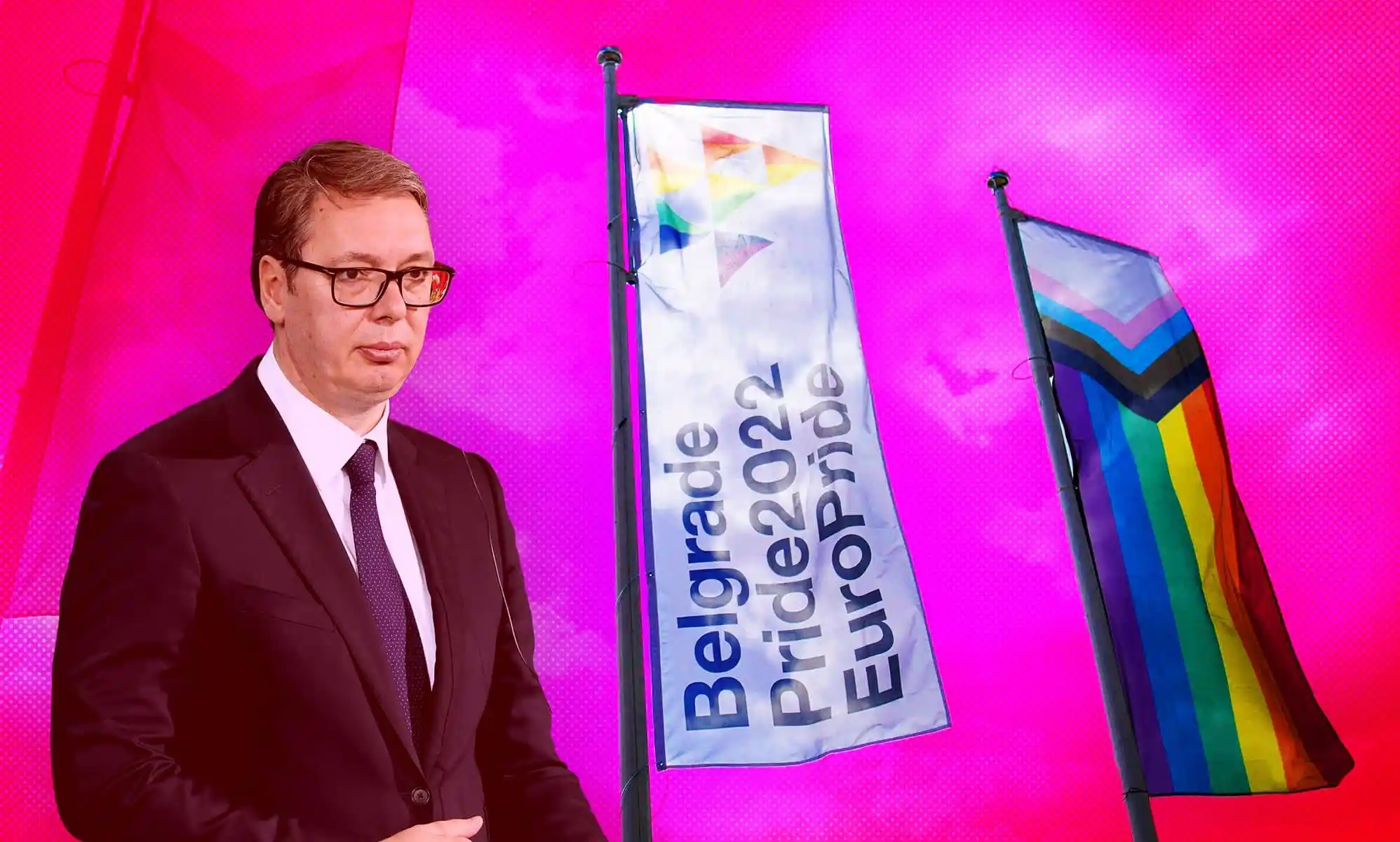Serbian president Aleksandar Vučić allowed the march to go ahead, but on a smaller route. (Getty)
Serbia’s government has been forced into a screeching u-turn after its decision to ban EuroPride’s parade was met with fierce opposition.
EuroPride is an international celebration of the LGBTQ+ community hosted by a different European country each year.
Serbia has been hosting EuroPride in its capital of Belgrade since Monday (12 September) with the event culminating on Sunday (18 September). But police announced announced on Tuesday (13 September) that its annual parade, due to take place on Saturday (17 September), had been cancelled over safety concerns amid rising anti-LGBTQ+ sentiment from the religious right.
However, Serbian media reported on Thursday (15 September) that the government had assured the European Commission that the march would take place as planned – albeit with a new, shorter route.
Participants will now gather at 5pm outside the Constitutional Court in Belgrade, near the National Assembly of Serbia, and walk to the Tasmajdan Stadium were a concert and formal closing ceremony of EuroPride will take place.
What happened with EuroPride in Serbia?
The jubilant and kaleidoscopic parade is the crown jewel in EuroPride’s festivities. But its status in Serbia has been in question for weeks.
The country’s president Aleksandar Vučić first rained on EuroPride’s parade in August saying it would be “postponed or cancelled” amid rising tension with neighbouring Kosovo. But the European Pride Organisers Association (EPOA), which is responsible EuroPride, refused to back down, saying the president “cannot cancel someone else’s event”.
Thousands of religious and right-wing homophobes would go on to march through the streets of Belgrade in protest of EuroPride, led by the Serbian Orthodox Church, saying the event threatened traditional family values.
The decision to cancel the parade by Serbian police just two days into EuroPride was met with fury and outrage from both Brussels and people on the ground in Belgrave.
MEPs including Ireland’s Maria Walsh called for LGBTQ+ people to march on the planned parade route regardless, saying the banning of Pride is anti-constitutional, while the EPOA prepared to fight the decision in the Serbian Administrative Court. As this was happening, more than 29,000 people signed a petition calling for the parade to be reinstated.
Upon handing in the petition, the European Pride Organisers Association (EPOA) president Kristine Garina said: “Walk around Belgrade today and you can see happy, loving, peaceful LGBTI+ people who have come here to show support and solidarity.
“They bring no shame to Belgrade, to Serbia, or to the Western Balkans. They embody the progressive European future to which Serbia aspires.”
Serbia was selected to host EuroPride amid negotiations for its membership to the European Union. EuroPride organisers and MEPs believed it to be a good chance for Serbia to prove it could follow several of the human rights statutes that need to be followed by EU members. But, after the complications that have arisen, negotiations could be on shaky ground.
“Serbia has made important steps towards strengthening equality for LGBTIQ+ people and their rights to non-discrimination, freedom of expression, peaceful assembly, and freedom from violence,” a spokesperson said in a joint letter from several country embassies inside and outside the European Union. “Hosting EuroPride in Belgrade is a celebration and an acknowledgement of that progress.
“We commit to listening and supporting the work of grassroots human rights defenders, civil society organisations, and community leaders. Their work on the frontlines makes a positive impact on LGBTIQ+ rights, often at a personal risk.”
During a talk at the International Human Rights Conference, which was scheduled as a preliminary event for the Pride march, German MEP Terry Reintke told audience members: “We won’t be silenced and will stand up for our rights. In Belgrade and everywhere in Europe.”
